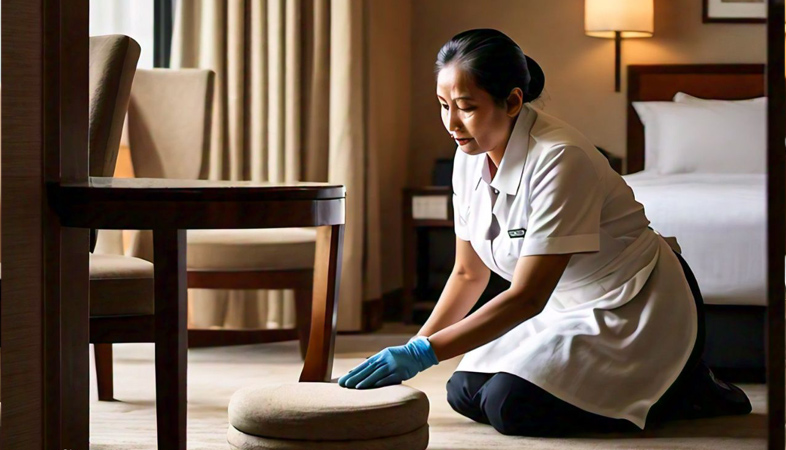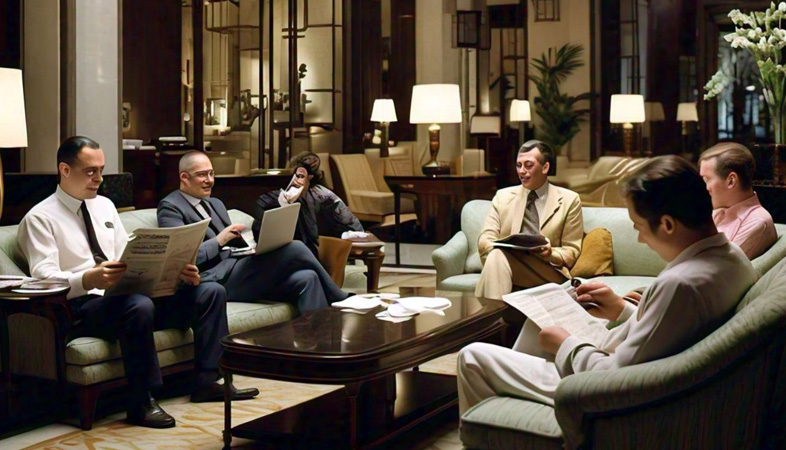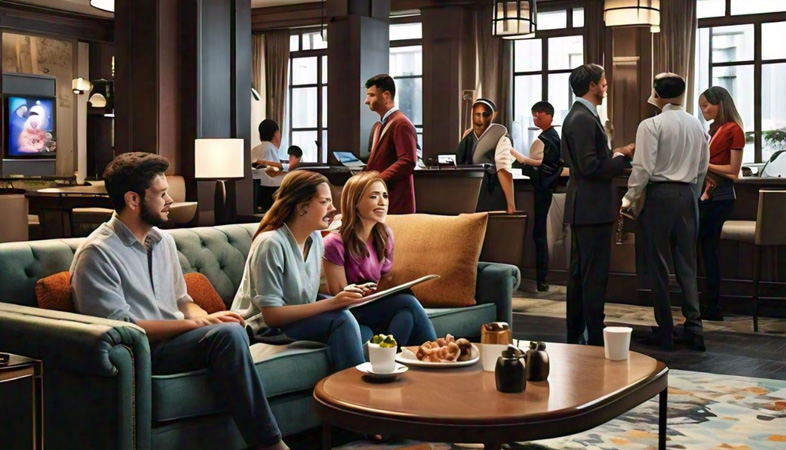Upcycling and Reusing Materials: Reducing Waste in Hotel Housekeeping
By implementing upcycling and reusing strategies, hotels can lead the way in environmental responsibility while offering guests a more eco-conscious experience.
The hospitality industry is known for its vast consumption
of resources, and with sustainability becoming an increasingly important issue,
many hotels are turning to innovative solutions to reduce their environmental
footprint. One such solution is upcycling and reusing materials in hotel
housekeeping. Upcycling, which involves transforming waste materials or
unwanted products into something of higher value, is proving to be an effective
way to minimize waste, save money, and contribute to a greener environment.
Hotels that incorporate these practices into their housekeeping operations not
only reduce their reliance on disposable products but also create opportunities
for sustainable growth. By implementing upcycling and reusing strategies,
hotels can lead the way in environmental responsibility while offering guests a
more eco-conscious experience.
A significant portion of waste in hotel housekeeping comes from single-use items. These can include toiletries, linens, cleaning products, and other disposable materials. While these items are often necessary for maintaining cleanliness and hygiene standards, their constant use can contribute to a large amount of waste. Upcycling offers a solution to this problem by giving new life to materials that would otherwise be discarded. For example, old towels and linens can be repurposed into cleaning rags or used to create new products such as decorative cushions or cloth napkins. This not only reduces waste but also cuts costs for hotels, as they no longer need to constantly purchase new materials.
In addition to repurposing linens and towels, many hotels are exploring ways to upcycle furniture and decor. Hotels often go through frequent refurbishments, resulting in large amounts of discarded furniture and decor that end up in landfills. Instead of throwing away outdated furniture, many hotels are turning to creative solutions, such as reupholstering chairs, repainting old tables, or transforming unused items into new pieces. For example, a hotel might take an old wooden chair and give it a fresh coat of paint, turning it into a statement piece in a lobby or guest room. These upcycled items can add character and charm to hotel spaces, all while reducing waste and promoting sustainability.
Another effective way hotels are embracing upcycling in housekeeping is by reusing materials that are still in good condition. Items such as toiletries, shampoos, conditioners, and soaps often come in single-use plastic packaging, which contributes significantly to plastic pollution. Many hotels are now encouraging guests to reuse their toiletry items during their stay, and some have even adopted refillable dispensers for soap and shampoo to minimize waste. Additionally, certain hotel chains are exploring the possibility of collecting partially used toiletries from guests and donating them to organizations in need, further upcycling these products for a good cause. This not only reduces waste but also helps make a positive social impact.
Housekeeping staff plays a vital role in implementing upcycling practices. Training and educating housekeeping teams on the benefits of upcycling and reusing materials can significantly improve the effectiveness of these strategies. By fostering a culture of sustainability within the housekeeping department, hotels can ensure that all staff members are on board and committed to reducing waste. Housekeepers can be encouraged to identify items that can be upcycled and repurposed, from linens to furniture to cleaning supplies. When housekeeping staff is empowered to think creatively and adopt more sustainable practices, the impact can be significant.
The use of sustainable cleaning products is another area where upcycling and reusing materials can make a difference. Many cleaning products come in plastic bottles that are used only once before being discarded. Hotels can reduce their environmental impact by switching to eco-friendly cleaning supplies that come in recyclable or refillable packaging.
Upcycling and reusing materials in hotel housekeeping are essential strategies for reducing waste, saving costs, and promoting sustainability. By repurposing old linens, furniture, and toiletries, hotels can minimize their environmental footprint while providing a more eco-conscious experience for guests. Through staff training and the adoption of sustainable cleaning products, hotels can create a culture of sustainability that benefits both the environment and the business. As consumer demand for eco-friendly practices grows, hotels that prioritize upcycling and reusing materials will not only reduce waste but also gain a competitive edge in an increasingly green-conscious market.
.png)






















 as Manager Fire & Safety.jpeg)






